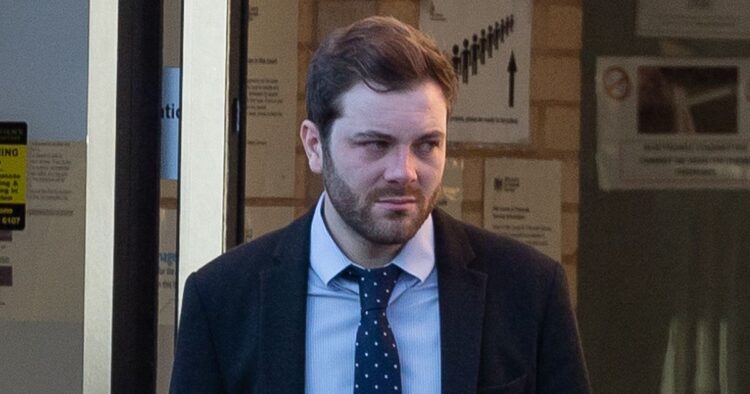By Gavin Mackintosh-
Press watchdog Ipso rejected a claim by a convicted sex offender, Robert Leary, against a regional daily over an inaccurate article that the pervert sent “explicit images of himself” to his victim.
. The article was about a court report which appeared online only, and reported that the 27 year old complainant had pleaded guilty to charges of computer misuse, harassment and sending indecent images, in relation to allegations that he sent “threatening and sexually explicit messages” after he “hacked” the victim’s Snapchat account and “downloaded private images of her in a state of undress.
The article stated that the complainant “demanded further naked pictures of the Nhs woman in exchange for deleting the ones he already had, and offered her money in exchange for ‘more’, and sent her unsolicited explicit images of himself.” It further reported that the complainant had “used the dark web to repeatedly access his victim’s private account even after she changed her password”.
He was sentenced to 12 weeks in prison, suspended for 12 months at Sefton Manchester Court.
The demented complainant added in his complaint that the article was inaccurate because it made reference to passwords he had obtained on the “dark web”. He argued that the phrase “dark web” was never mentioned at court, and that he had used “easily accessible” websites to get this information on the open internet. He said he had not used any special software to obtain this information.
Unknown to the woman, who was an Nhs worker, the complainant had been best pals with her partner for 20 years.
The publication volunteered to add a correction to the contested article which read: “A previous version of this article reported that Robert Leary had sent the victim unsolicited explicit images of himself. In fact, CPS have confirmed that there was no evidence to suggest that the explicit images Leary sent to the victim were of him. We are happy to clarify this and have amended the article accordingly.”
”The publication provided copies of the court reporter’s notes to demonstrate that it had taken care over the accuracy of the story. The notes recorded that the complainant had “used various names to contact victim and send her… pictures asking to see more photographs and sent her an erect penis with the message ‘think you can take it all [name]?’”.
The regulator accepted that the Liverpool Echo erroneously reported that Robert Leary had “sent [the woman] unsolicited explicit images of himself”, but the Independent Press Standards Organisation concluded that this did not represent a significant inaccuracy in the context of its coverage of his crimes.
The Echo reported Leary had pleaded guilty to charges of computer misuse, harassment and sending indecent images, in relation to allegations that he sent “threatening and sexually explicit messages” after he hacked the victim’s Snapchat account and “downloaded private images of her in a state of undress”.
Big time pervert, Leary, complained that it was never stated in court that he had sent explicit images of himself to the woman in question, but IPSO dismissed his complaint after finding the impact on the victim of receiving the unsolicited image and threatening message would have been the same – regardless of who appeared in the image.
Highlighting Clause 1 (Accuracy), Clause 4 (Intrusion into shock or grief) and Clause 9 (Reporting of crime) of the Editors’ Code of Practice, Leary, admitted the court heard he had sent the victim explicit images, but they were not of himself.
Following the complaint by IPSO, the Echo contacted the Crown Prosecution Service, which confirmed there was no evidence to suggest that the explicit images Leary had shared with his victim were of himself.
During the course of IPSO’s investigation, a correction was added by the newspaper to the story and relevant social media posts.
The watchdog found the Echo had inaccurately recorded what was heard in court, and had gone beyond what was heard during proceedings in making the assumption that the explicit images were of Leary.
However, the Committee concluded the message which had accompanied the image was direct and personal, and the impact on the victim of receiving the unsolicited image and threatening message would have been the same, regardless of whether the image showed the complainant or another individual.
The watchdog said it was insignificant in the context of his conviction whether the image showed the complainant or another individual was not significant in the context of his conviction.
IPSO did not consider that reporting that the image showed Leary rendered the story significantly inaccurate, distorted, or misleading, where the key focus of the article was the offences to which he entered guilty pleas and the impact his actions had had on the victim.
Image: Cavendish Press (Manchester Ltd)




